
This audio was prepared for ESL learners for educational purposes and is presented on a non-profit site for streaming only, not for download. Click on the chapter you want to listen to and the book will automatically open up so you can read along.

Educational resources for busy parents

This audio was prepared for ESL learners for educational purposes and is presented on a non-profit site for streaming only, not for download. Click on the chapter you want to listen to and the book will automatically open up so you can read along.
This recording of The Great Gatsby?was made for educational purposes to assist ESL learners.?Downloadable files are NOT available of this material, it is streaming only. Click on the link for the chapter you want to stream and the text will also appear, allowing you to follow along in the text while you listen.
Works and Days provides advice on agrarian matters and personal conduct. The Theogony explains the ancestry of the gods. The Shield of Heracles is the adventure of Heracles accepting an enemy’s challenge to fight. – Summary by Arthur Krolman for Librivox
Whole book (zip file)Download
Subscribe by iTunesiTunes
Running time: 2 hours, 30 minutes
This dialogue brings Socrates face to face with the famous sophist Gorgias and his followers. It is a work likely completed around the time of “Republic” and illuminates many of the spiritual ideas of Plato. The spirituality, as Jowett points out in his wonderful introduction, has many ideas akin to Christianity, but is more generous as it reserves damnation only for the tyrants of the world. Some of the truths of Socrates, as presented by Plato, shine forth in this wonderful work on sophistry and other forms of persuasion or cookery. (Summary by Kevin Johnson for Librivox)
Whole book (zip file)Download
Subscribe by iTunesiTunes
Run time: 7 hours, 6 minutes
Meno (Ancient Greek: ?????) is a Socratic dialogue written by Plato. Written in the Socratic dialectic style, it attempts to determine the definition of virtue, or arete, meaning in this case virtue in general, rather than particular virtues, such as justice or temperance. The goal is a common definition that applies equally to all particular virtues. Socrates moves the discussion past the philosophical confusion, or aporia, created by Meno’s paradox (aka the learner’s paradox) with the introduction of new Platonic ideas: the theory of knowledge as recollection, anamnesis, and in the final lines a movement towards Platonic idealism.. (Introduction by Wikipedia)
Whole book (zip file)Download
Subscribe by iTunesiTunes
Run time: 2 hours, 24 minutes
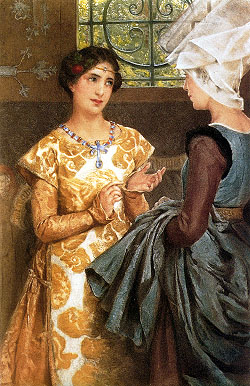
After the turmoil and uncertainty of Henry IV a new era appears to dawn for England with the accession of the eponymous Henry V. In this sunny pageant Chorus guides us along Henry’s glittering carpet ride of success as the new king completes his transformation from rebellious wastrel to a truly regal potentate. Of course, there is an underlying feeling that the good times won’t last, and this is all the more reason to enjoy the Indian summer before the protracted and bitter fall of the house of Lancaster. (Introduction by Algy Pug for Librivox)
Whole book (zip file)Download
Subscribe by iTunesiTunes
Run time: 3 hours, 4 minutes
The Crucible is a play by Arthur Miller which premiered in 1953. It famously used the Salem Witch Trials to offer a commentary on McCarthyite America. This production stars Stacy Keach, Richard Dreyfuss, Ed Begley, Jr., Joe Spano, and Michael York, among others. You can stream the audio here.
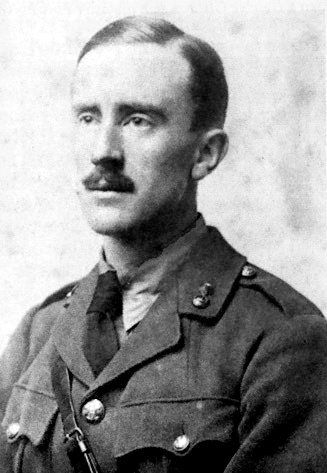
This recording of the Hobbit was made for educational purposes to assist ESL learners. Downloadable files are NOT available of this material, it is streaming only. Click on the link for the chapter you want to stream and the text will also appear, allowing you to follow along in the text while you listen.
Hamlet by Shakespeare, simplified for school children?by Shakespeare Lynch Multimedia is performed by Michael Matus.
Description from iTunes:
Shakespeare made easier for schoolchildren and baffled adults with an easy to understand narrative adaptation and parallel text with the original. Why adapt Shakespeare? Well, it’s hard! A lot of actors in Shakespeare productions can act it, confusing audiences. A lot of teachers can’t teach it, confusing pupils. A lot of parents lack confidence helping with homework. This is for students of all ages and parents, too. The purpose is to make Shakespeare comprehensible and accessible. Shakespeare is the greatest of writers, for that reason everyone must attempt to grasp his genius. Read the original first and then consult this adaptation to help you. Use this as an aid. The poetry of the original cannot be matched. The action of Book One, Chapter 1 corresponds with Act One, Scene 1, (for the podcasts Episode 1 is 1-1) and so on This recording of Hamlet is read by Michael Matus, who has acted extensively with the RSC and will be appearing at the Globe in London during the Summer 2008 season.
This collection of early Orson Welles radio theater productions includes the following plays.
Hamlet
Julius Caesar
Twelfth Night
The Merchant of Venice
Macbeth
Henry ?V
Romeo and Juliet
Richard III
Richard II
King Lear
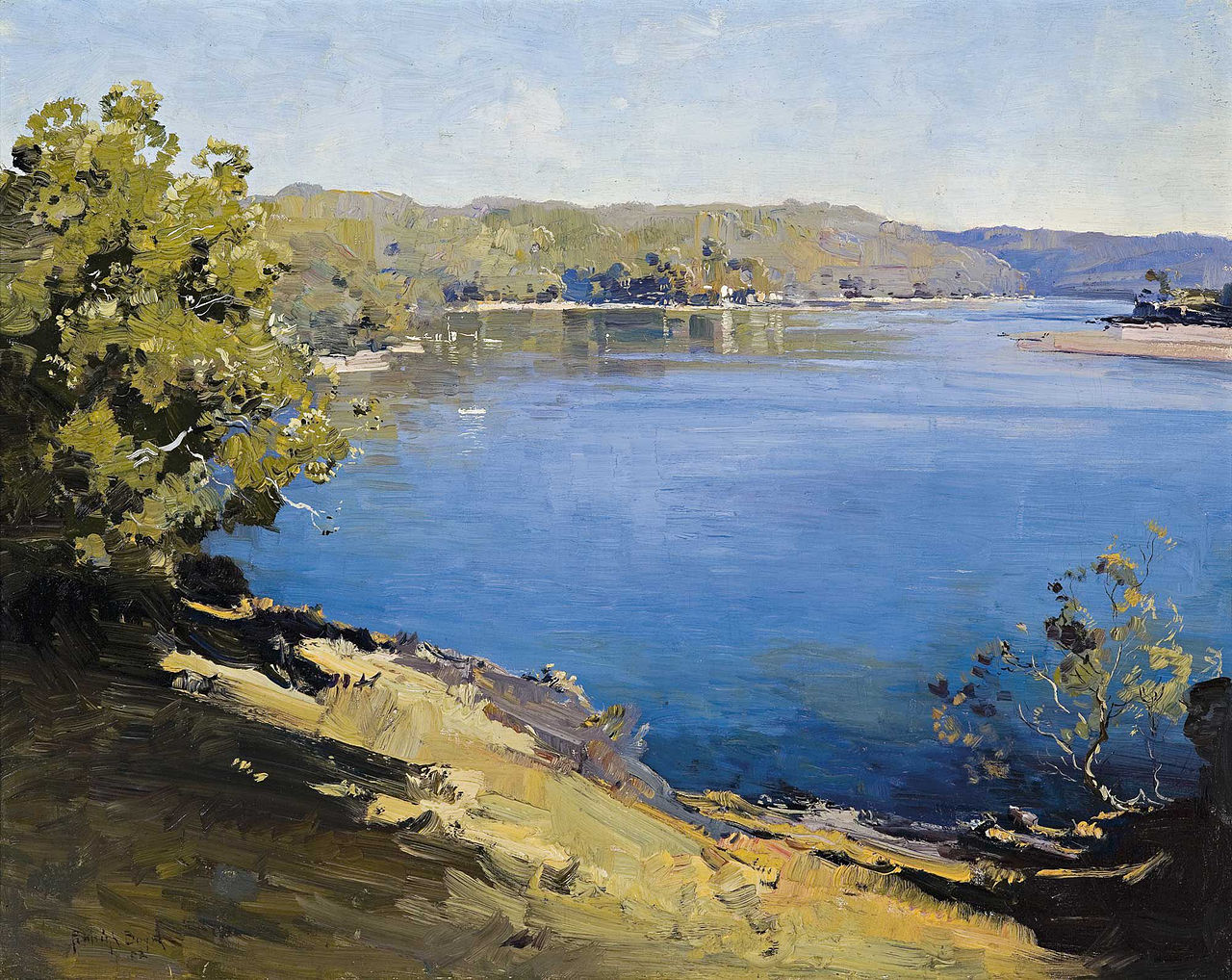
Robert Bruce’s March to Bannockburn (text and audio reading)
Green Grow the Rushes (modernized version, Celtic Woman)
Flow Gently Sweet Afton by Robert Burns (You Tube video, including lyrics)
To a Louse by Robert Burns (eText and You Tube video)
To a Mouse by Robert Burns (You Tube video with embedded text)
Auld Lang Syne (You tube video with embedded text)
My Love is like a Red, Red Rose (song and e-Text)
Editing Burns for the 21st century has updated audio renditions of several Burns poems
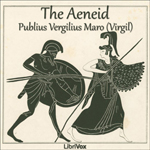
Summary:
VIRGIL (70 BC – 19 BC), translated by John DRYDEN (1631 – 1700)
The Aeneid is a Latin epic written by Virgil in the 1st century BC that tells the legendary story of Aeneas, a Trojan who traveled to Italy, where he became the ancestor of the Romans. The first six of the poem’s twelve books tell the story of Aeneas’ wanderings from Troy to Italy, and the poem’s second half treats the Trojans’ ultimately victorious war upon the Latins, under whose name Aeneas and his Trojan followers are destined to be subsumed. The poem was commissioned from Vergil by the Emperor Augustus to glorify Rome. Several critics think that the hero Aeneas’ abandonment of the Cartheginian Queen Dido, is meant as a statement of how Augustus’ enemy, Mark Anthony, should have behaved with the Egyptian Queen Cleopatra. (Summary by Wikipedia and Karen Merline)
Running time: 13 hours, 40 minutes
To hear this book, click play in the box below or click on the chapter links.
Book 1: A Fateful Haven, part 1
Book 1: A Fateful Haven, part 2
Book 2: How they took the City, part 1
Book 2: How they took the City, part 2
Book 3: Sea Wanderings and Strange Meetings, part 1
Book 3: Sea Wanderings and Strange Meetings, part 2
Book 4: The Passion of the Queen, part 1
Book 4: The Passion of the Queen, part 2
Book 5: Games and a Conflagration, part 1
Book 5: Games and a Conflagration, part 2
Book 6: The World Below, part 1
Book 6: The World Below, part 2
Book 7: Juno Served by a Fury, part 1
Book 7: Juno Served by a Fury, part 2
Book 8: Arcadian Allies, part 1
Book 8: Arcadian Allies, part 2
Bk 09: A Night Sortie, a Day Assault, pt 1
Bk 09: A Night Sortie, a Day Assault, pt 2
Bk 10: The Death of Princes, pt 1
Bk 10: The Death of Princes, pt 2
Bk 11: Debaters and a Warrior Girl, pt 1
Bk 11: Debaters and a Warrior Girl, pt 2
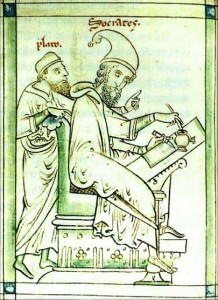
The Apology of Socrates is Plato’s version of the speech given by Socrates as he unsuccessfully defended himself in 399 BC against the charges of “corrupting the young, and by not believing in the gods in whom the city believes, but in other daimonia that are novel” (24b). “Apology” here has its earlier meaning (now usually expressed by the word “apologia”) of speaking in defense of a cause or of one’s beliefs or actions. (Summary by Wikipedia)
Read this book online or on your Kindle or in ePub format
Download the entire book as a zipped file
Running time: 1 hour, 20 minutes

Summary:
Imagine a strange, tropical place that is almost inaccessible. Time appears to have stood still there. Species of animal and plant life not seen elsewhere on Earth, except in the fossil record, inhabit the place. The lakes heave with the shapes of huge grey bulks moving under the surface. The woods are places where chittering cries move about above your head, as powerful apes move swiftly in the canopy of leaves. Then, a tree splinters nearby, and a dinosaur steps out from his hiding place… and he’s eyeing YOU.
Jurassic Park? Not quite. The Lost World was an inspiration for Jurassic Park; in fact, a character in J.P. has the same name as one of the chief characters in The Lost World. It also inspired King Kong. But this is the original! Four adventurers go off to find the place shown in a dead man’s sketch book – they find a war between apes and Indians, prowling dinosaurs, a sparkly treasure hidden in the blue clay – they find the Lost World. And because of the treachery of a native guide, their means of escape is destroyed! (courtesy of Librivox)
Read this book online OR on your Kindle
Running time: 8 hours, 23 minutes
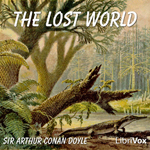
1: There are Heroisms All Round Us
2: Try Your Luck with Professor Challenger
3: He is a Perfectly Impossible Person
4: It’s Just the Biggest Thing in the World
7: Tomorrow we Disappear into the Unknown
8: The Outlying Pickets of the New World
9: Who Could Have Foreseen It?
10: The Most Wonderful Things Have Happened!
12: It Was Dreadful in the Forest
13: A Sight Which I Shall Never Forget
14: Those Were the Real Conquests
Total running time: 10 hours, 58 minutes
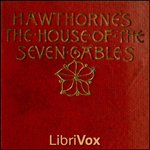
Powered by WishList Member - Membership Software